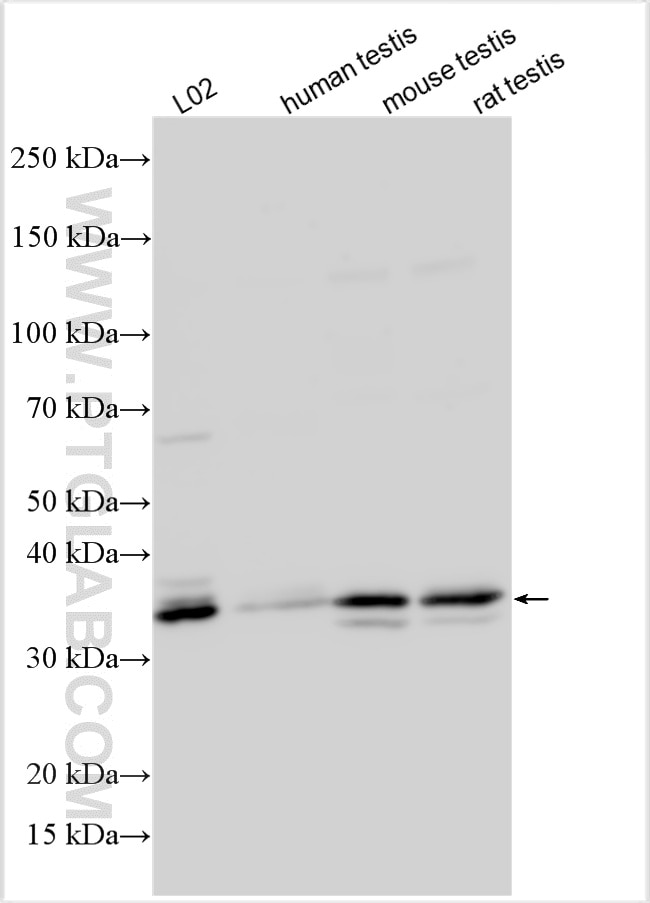Tested Applications
| Positive WB detected in | L02 cells, human testis tissue, mouse testis tissue, rat testis tissue |
Recommended dilution
| Application | Dilution |
|---|---|
| Western Blot (WB) | WB : 1:1000-1:8000 |
| It is recommended that this reagent should be titrated in each testing system to obtain optimal results. | |
| Sample-dependent, Check data in validation data gallery. | |
Product Information
16626-1-AP targets EPYC in WB, ELISA applications and shows reactivity with human, mouse, rat samples.
| Tested Reactivity | human, mouse, rat |
| Host / Isotype | Rabbit / IgG |
| Class | Polyclonal |
| Type | Antibody |
| Immunogen |
CatNo: Ag9929 Product name: Recombinant human EPYC protein Source: e coli.-derived, PET28a Tag: 6*His Domain: 24-322 aa of BC030958 Sequence: ESINYDSETYDATLEDLDNLYNYENIPVGKVEIEIATVMPSGNRELLTPPPQPEKAQEEEEEEESTPRLIDGSSPQEPEFTGVLGPHTNEDFPTCLLCTCISTTVYCDDHELDAIPPLPKNTAYFYSRFNRIKKINKNDFASLSDLKRIDLTSNLISEIDEDAFRKLPQLRELVLRDNKIRQLPELPTTLTFIDISNNRLGRKGIKQEAFKDMYDLHHLYLTDNNLDHIPLPLPENLRALHLQNNNILEMHEDTFCNVKNLTYIRKALEDIRLDGNPINLSKTPQAYMCLPRLPVGSLV Predict reactive species |
| Full Name | epiphycan |
| Calculated Molecular Weight | 322 aa, 37 kDa |
| Observed Molecular Weight | 37kDa, 62 kDa |
| GenBank Accession Number | BC030958 |
| Gene Symbol | EPYC |
| Gene ID (NCBI) | 1833 |
| Conjugate | Unconjugated |
| Form | Liquid |
| Purification Method | Antigen affinity purification |
| UNIPROT ID | Q99645 |
| Storage Buffer | PBS with 0.02% sodium azide and 50% glycerol, pH 7.3. |
| Storage Conditions | Store at -20°C. Stable for one year after shipment. Aliquoting is unnecessary for -20oC storage. 20ul sizes contain 0.1% BSA. |
Background Information
EPYC (Epiphycan), also known as DSPG3. It is demonstrated that DSPG3 is expressed in cartilage, as well as ligament and placental tissues (PMID: 8975717). May have a role in bone formation and also in establishing the ordered structure of cartilage through matrix organization. The molecular weight of EPYC is 37 kDa, it is also reported the molecular weight is 62 kDa (PMID: 38184732).
Protocols
| Product Specific Protocols | |
|---|---|
| WB protocol for EPYC antibody 16626-1-AP | Download protocol |
| Standard Protocols | |
|---|---|
| Click here to view our Standard Protocols |




